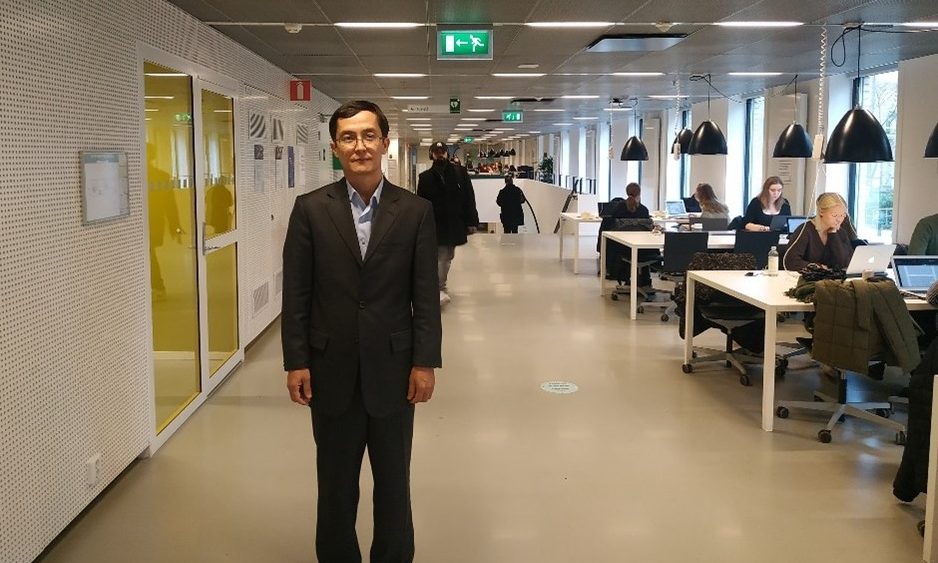by Muzaffar Dostqoriev, Academy of the General Prosecutors Office of Uzbekistan
I was invited to Lund University to conduct research within the European Commission funded project “Central Asian Law: Legal Cultures and Business Environment”, coordinated by Sociology of Law Department.
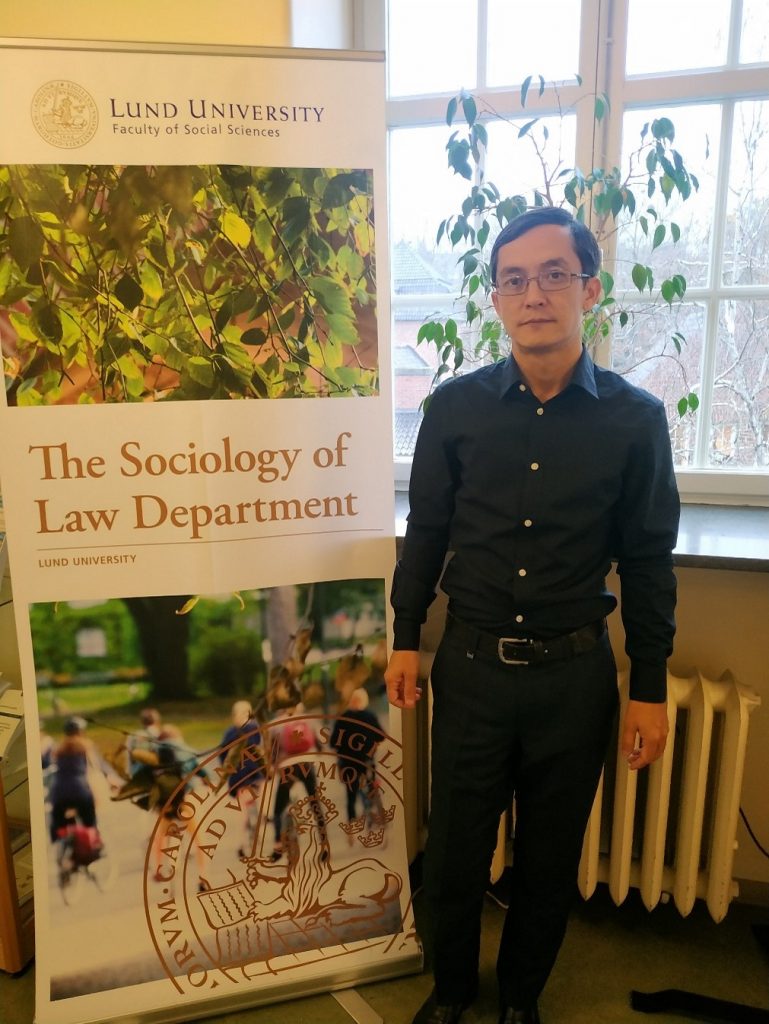
My participation in this project as well as my secondment were realized in accordance with the Memorandum of Understanding signed between the Academy of the General Prosecutor’s Office and the Department of Sociology of Law of Lund University.
My secondment at Lund University started from November 9 and completed on December 31, 2021.
During the secondment, I completed the following activities:
– Prior to my activity at Lund university, on November 6-8, 2021, I took part in a midterm project conference on “Understanding legal cultures in Central Asia” held in Istanbul, Turkey. Representatives of a number of higher educational institutions of European Union and Central Asia (besides Lund University, there were experts from Charles University in Prague, University of Zurich, Riga University of Law and Marmara University in Turkey and other organizations) presented their presentations based on their research topic.
I presented my report on “Legal awareness and legal culture of citizens in Uzbekistan”, where I informed the participants about the current situation of the legal culture and literacy of the population in Uzbekistan as well as content of the existing legislation aimed at improving the current situation in this field.
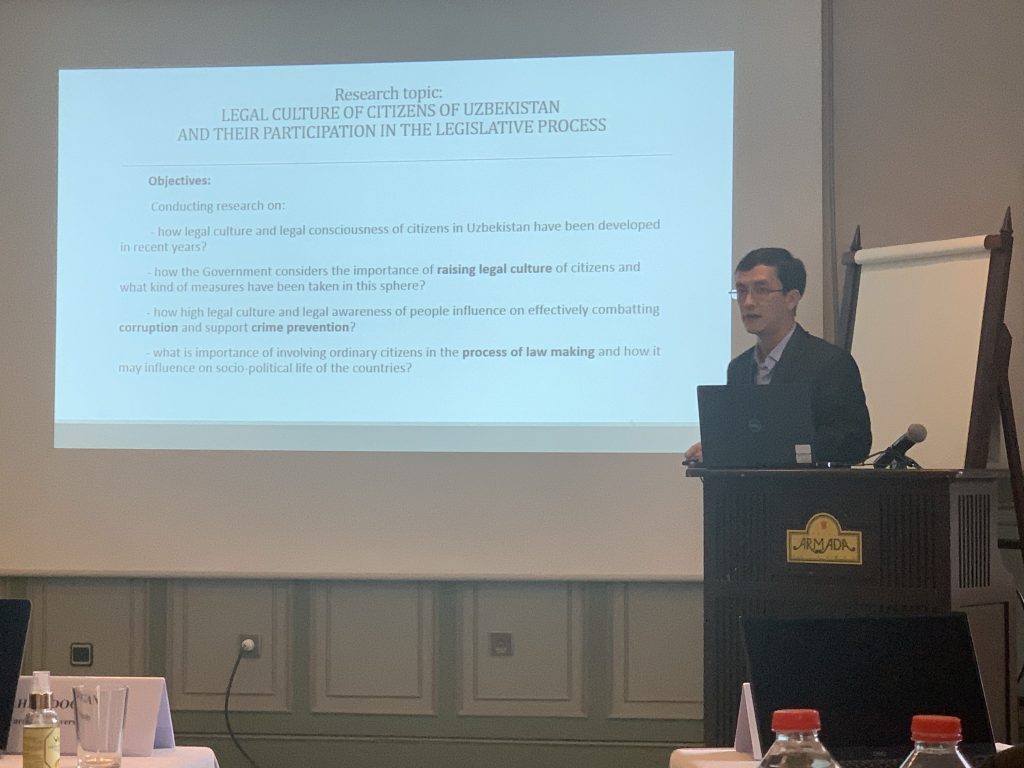
Emphasizing the importance of measures aimed at forming a legal culture and legal consciousness in the society, I noted in my presentation that it creates a favorable environment in minds of citizens to strengthen the vital idea that “decision-making in society is the key to building a democratic state governed by the rule of law.”
The Uzbek Government provided a number of measures aimed at significantly improving the situation in this field within the frame of legal reforms. In particular, the National Legal Internet Portal started its work. The electronic portal includes a database of national legislation and additional legal information (legal dictionary, electronic platform of legal literature, online forum for discussion of draft laws, etc.), and a free legal advisory portal were launched as well.
I think the launch of such mechanisms as the legal information system called “Advice.uz” plays an important role in promoting to raise legal awareness and legal culture of the population in Uzbekistan.
Three-day conference was very fruitful. I have received useful information concerning my research topic during the conference. Presentations of other participants covered such issues of social and legal relations as the implementation of established legal norms in practice, relationships with international institutions, the practice of relationships with local institutions and various business actors as well.
In particular, Professor P. Finke (University of Zurich), who had studied the Central Asian region and Mongolia for more than 30 years, noted the positive trends in Uzbekistan, including a positive attitude among people who, to a certain extent, have acquired faith.
From the point of view of ensuring friendly business infrastructure, issues such as reducing “transactional” costs, including informal (corrupt) payments to gain market access, practices of extortion by organized groups observed in the societies of the region, as well as ensuring the observance of private property rights and guarantees of making a profit from the investment.
It was also interesting to hear the presentation of Irna Hoffman from the University of Oxford, in which she provided examples of a study carried out in one of the countries of the region on the perception and enforcement of laws in rural areas. In particular, she noted the readiness of Chinese investors to enter into informal practices in order to promote business in the country’s agricultural sector, while there was an example of one of the European companies leaving the market due to a greater commitment to honest business conduct.
A similar example was provided by professor Erhan Dogan from Marmara University (Turkey), who had interviewed Turkish entrepreneurs regarding formal and informal business practices in Uzbekistan. Professor noted the rather rapid resolution of economic disputes by the country’s courts, as well as the enforcement of court decisions.
Another researcher from Marmara University Beyhan Cagri Tuzcuoglu in his presentation outlined how Uzbekistan paid special attention to the formation and development of techno-parks aimed at developing business and an attractive investment environment. The speaker proposed to strengthen in this direction mutual cooperation with the countries of the European Union, including within the framework of this project.
The representative of the University of Zurich, Meltem Sancak revealed the peculiarities of the food culture and the possibilities for the development of gastronomic tourism in the countries of Central Asia. Citing examples of doing business in different countries of the region, she noted that in the implementation of entrepreneurship in this industry, it is necessary to consider all the factors that could contribute to its development, including the food culture of its peoples.
As a practical outcome of the conference, I made some notes and obtained ideas for myself, which I used in my research work.
It was very important to design the list of resources and make literature review concerning my research topic. In order to do that I have got acquainted with the activity of the Central library of Lund University, as well as the Library of the Faculty of social sciences and the Information Resource Centers of the Faculty of Law.
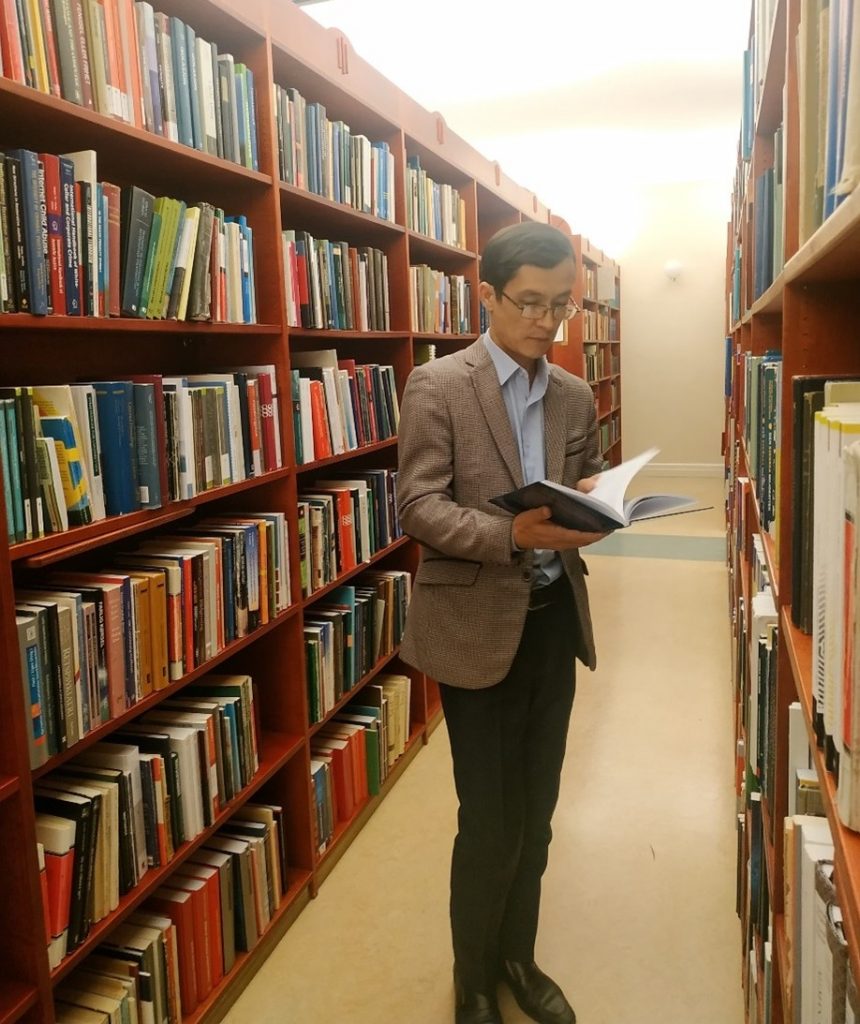
The system of library of the university is very convenient to use and well- designed. It is based on the best technologies used in the field of library-designing. In particular, the official website of Lund University (ending with “lu.se” domain) connects a number of systems: the Central Library of the University and the official websites of the faculties and their information resources. A single electronic case management system “Canvas” and other distance learning systems, as well as web-mail and wireless internet connection (Wi-Fi) are also integrated to this website. A special system provides information about the scientific activity of the university’s trainees and students, and foreign educational institutions and a number of other electronic platforms as well.
As a part of my study, I have used electronic resources database and library resources in my research area above listed. I made a literature review, based on the resources collected using this electronic system and had received relevant copies.
Based on my research work, I prepared a paper on “Factors that influence on the formation of legal consciousness and culture of citizens”, for publishing in Project team annual handbook.
I have introduced the key moments I had discovered during my research on my paper.
In particular, I have used the most popular theoretical framework in this field. Citing the works of famous sociologists like Tyler, McAdams, Erlich, Banakar and etc., I tried to explain why it is so important to learn the reasons of obeying the laws, as well as connection between people’s attitudes to laws and effectiveness of the rule of law in the society.
From my point of view, it is not possible to reach true “rule of law” society while its citizens still don’t respect laws. Once ordinary people are well informed about the content of existing laws understanding their importance they will comply with laws irrespective how strong sanctions can be provided in the case of its violation. So, government’s efforts to adopt special norms which aim increasing the existing legal culture are still effective, but it is also vital to understand that without forming a culture of a respect towards the laws the situation will lead to significant decrease the effectiveness of provided measures.
Measures provided by the government can only build a legal framework for the people’s activity towards upbringing the true legal culture. Another important issue is that it should be considered the national aspects and other factors on which the people’s legal culture was formed during the ages. For example, legal culture of the people in Uzbekistan was formed under various factors about which I have written on my research paper. I have listed number of factors among which I emphasized the impact of social media.
It is has become obvious that social media is remaining the most popular source people use in everyday life. There is an abundance of examples from real situation, including how people get legal information from social media. It is well known that ordinary people use internet as a source where they can get not only useful information for their work or everyday life (e.g. life-hacks) but receive legal advice for using it in real situations.
An example was given about how car drivers in Uzbekistan were used to ask police officers to show their so called “dislocation” – the map of the route according to which they are eligible to carry out their service.
So, this practice became most popular among a number of car drivers. The case led to maintain such kind of “environment of complying the laws” not only among drivers themselves but the traffic police officers too. The police officers, who few years ago used to behave themselves as a state official whose instructions should be followed irrespective whether they are lawful or not, became more polite and “law abiding” during the communications with other subjects of traffic.
I have also attended a course on “Law, society and corruption” designed by the Department of Sociology of Law of Lund University. The main aim of the course was to present corruption as an elusive concept, that needs to be studied and be understood from multi-disciplinary perspectives. With this perception as a basis, the course aims to introduce the students to global and interdisciplinary perspectives in the area of corruption and anti-corruption studies. More specifically, the course examines the emergence, explanation, survival and presence of corruption from various social science perspectives by bringing up generally occurring theoretical, empirical and methodological questions and debates.
The course includes the following topics:
– Introduction to global indicators of corruption, constitutional state and governance and their consequences for understanding law, development and social change.
– Multi-disciplinary strategies and theoretical perspectives of corruption;
– Methodological and ethical questions in corruptions and anti-corruption studies;
– Insights from field research.
This course was given as an optional course in the master’s program in Sociology of Law. It can also be taken as a freestanding course.
Within the frame of my research, on December 18th, I took part in a webinar on “The importance of legal consciousness and legal culture of citizens in maintaining the rule of law”, organized by Uzbek Embassy in Germany with the partnership of Sociology of Law Department of the Lund University, and Academy of the General Prosecutor’s Office, and World Association of Youth of Uzbekistan.
During my presentation, I gave a brief overview of my secondment at Lund University and introduced the content of my research topic. I provided detailed information on cooperation with Lund University and the Academy of Prosecution, the scientific and practical outcomes of the project “Legal Cultures in Central Asia”, the preliminary results of the research at Lund University as well as the positive experience of the university in teaching and research. At the same time, I made a comparative analysis of the experience of Sweden and Uzbekistan in the field of legal consciousness and legal culture, theories of scientific research in the field of sociology of law.
The event was attended by Master’s degree students of the Academy of the General Prosecutor’s Office, members of the “Youth Parliament” under the Oliy Majlis (Parliament) of the Republic of Uzbekistan, representatives of the Embassy of the Republic of Uzbekistan in Germany and a number of educational institutions.
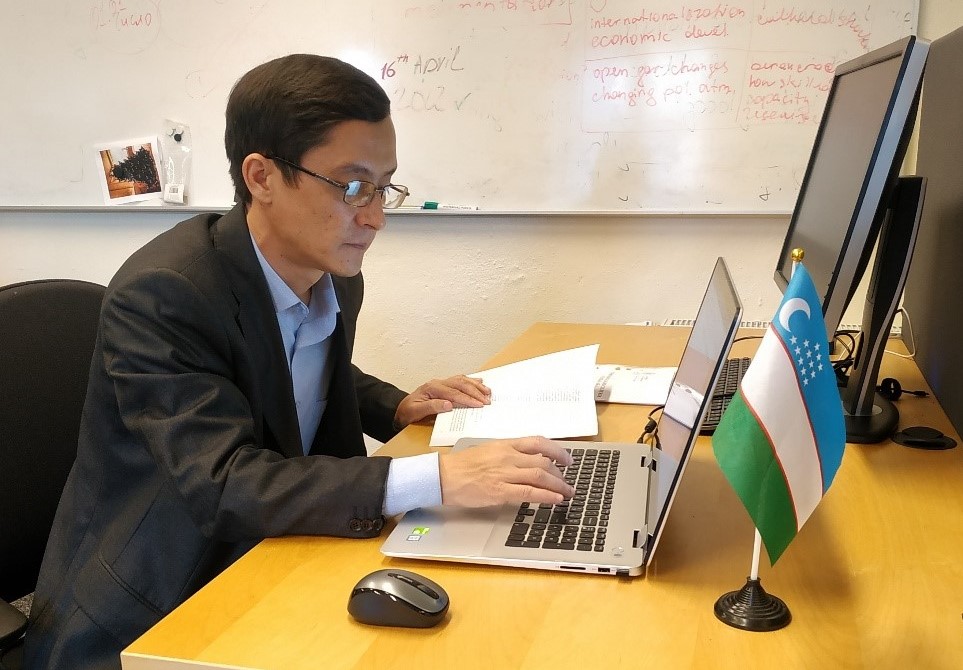
Saying in-brief, the secondment at Lund university was very useful for me and gave me opportunity to conduct research work in a new field and to get communicated with other project participants and share good experience.

